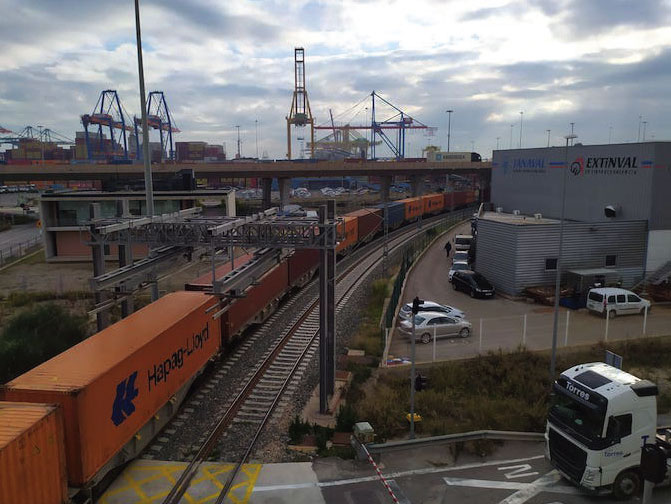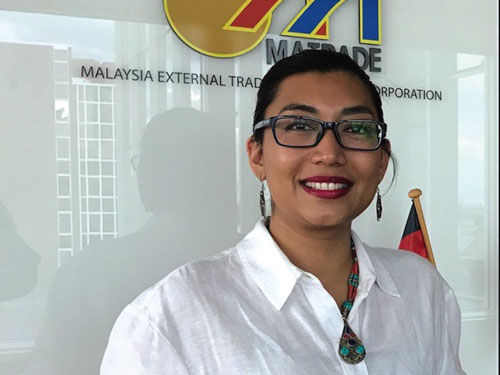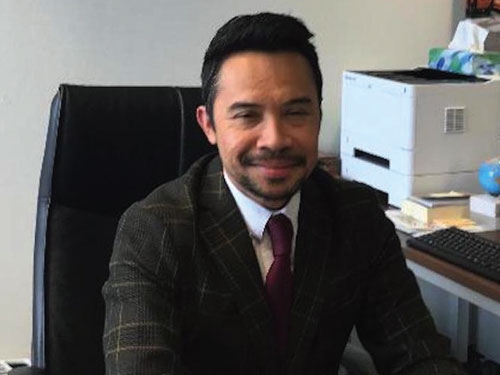“Halal Logistics” caters to the growing demand for halal products among the Muslim population in Germany.
The growing Muslim population in Germany –the country has the largest Muslim population in Europe – has created a niche market for halal food products and, with it, the need to have a well-functioning halal logistics network.
Research studies have been commissioned to assess the market potential of halal products in a number of European countries. One such study was undertaken by Prof. Dr. Yvonne Ziegler, specializing in air-transportation management, from Frankfurt University of Applied Sciences (Frankfurt UAS).

Halal Logistics
The study “Halal Logistics – Air Freight” examined the level of demand for halal products among the five million plus Muslim population in Germany and establishing a halal supply chain. The term “halal” in Arabic means “permitted” according to Islamic principles. The production and supply chains for such products – besides food products, the term also applies to cosmetic and pharmaceutical products –also need to conform to halal guidelines. The study was undertaken in collaboration with the halal certifying organization Halal Council and Lufthansa Cargo.
The study, which examined the willingness of the Muslim population to pay higher prices for halal food products and conducted a survey among 772 Muslims in Germany, found that almost all the persons said that halal food was important (88%) or moderately important (9%) for them. Some 94% of those questioned said they would prefer food products certified as halal while more than half of those questioned (59%) said they were willing to pay more for the food prepared under halal guidelines.
An interesting revelation was their willingness to pay a higher price, regardless of their earning capacity. Some 80% were willing to pay between five and 20% more for halal products. In fact, the remaining 20% were willing to pay 50% for halal products above the price of non-Halal products.
The study also analyzed various aspects of halal logistics in the airfreight sector, particularly at Frankfurt airport. The study examined Frankfurt airport’s potential as a hub for halal products in Europe and the conditions to be met for creating such a hub.
Germany Meat Exporter to Islamic Countries
Germany has also become a leading meat exporter to Islamic countries. Germany’s annual air-borne meat exports amount to more than 3 billion Euros to the world’s top ten Muslim countries. The study which also interviewed 20 exporting companies, found that for a supply chain to conform to halal standards all the equipment and tools used in the transportation should be deployed exclusively for halal products.
Meanwhile, individual ports in Europe have already been certified but Mahmoud Tatari, the managing director of the project partner Halal Control, saw good potential in air-borne trade. He felt that perishable and high-valued food products should continue to be transported by air, a shipment mode that would offer business opportunities to airports and airlines and allow them to further strengthen their expertise in halal logistics.
Halal products and halal services are an important component in Germany’s foreign trade. “Germany’s logistics companies are increasingly eyeing the halal niche market … there is a huge consumer base of some two billion Muslims worldwide, not counting the five million Muslim population in Germany itself. They (German logistics and trading companies) are not just eyeing halal imports into Germany but also exports of halal products outside Germany. Indeed, suppliers of halal products are vying with each other to increase their market share. Many German exporters of Turkish origin, for example, are aggressively exporting their products not only to the Mediterranean region but also to the Middle East,” Mathias Schmidt, who works for a forwarding company outside Frankfurt, told the American Journal of Transportation.
Turkish Airlines and other Middle Eastern carriers offload a large volume of halal cargo at European airports - German halal exporters are keen to break into new markets; traditional halal-product exporting nations such as Turkey, Malaysia, Saudi Arabia, UAE, etc. are keen to build up a customer base in Europe, particularly in Germany. Malaysia, for example, even organizes a special halal trade show called MIHAS; it will be held this year in Kuala Lumpur from September 7 to September 10.
Halal as a Business Value Proposition
The Frankfurt office of MATRADE, Malaysia’s official trade promotion agency, recently made a strong pitch for MIHAS 2022 through a webinar it recently organized in Frankfurt with the participation of 45 business representatives. The webinar called “Halal as a Catalyst of Innovation and Sustainability for Manufacturers”, was jointly organized with the Hannover Chamber of Commerce; Hannover is itself the venue of a trade show called “Halal Hannover” dedicated exclusively to the halal industry.

The webinar speakers included Zuhaila Sedek, MATRADE Trade Commissioner in Frankfurt; Prof. Ir. Dr. Yus Aniza Yusof, Deputy Director at Halal Products Research Institute, University Putra Malaysia; Prof. Dr. Katharina Riehn from the German Agricultural Society; and Romzi Sulaimen, Senior Manager, International Cooperation, Halal Development Corporation. The Malaysian Consul General in Frankfurt, Farzamie Sarkawi, who opened the webinar, described halal as a “business value proposition that appeals universally as it is aimed at ensuring the highest level of care in product manufacturing – not only in refraining from using forbidden ingredients but in caring for the environment, social well-being and good governance”.

Zuhaila Sedek said that the halal industry was a multi-billion industry with the consumers having a strong purchasing power. “In 2021, the spending of the global Muslim population was valued at US$2 trillion, and the value is projected to grow to US$2.8 trillion in 2024, as indicated by the 2022 State of the Global Islamic Economy Report. In Germany, halal is seen as a value proposition that has a lot of similarities with organic and vegan products and can serve the demand of between 5.3 and 5.6 million Muslims living in the country,” she maintained, and urged German businesses to partner with Malaysia in innovation and sustainable supply chain management.
However, Malaysia faces competition from other Muslim countries, particularly Turkey, Saudi Arabia, and the UAE; the national airlines of these countries are working closely with local halal food exporters to promote their exports to Germany and other European countries. Their success will depend on the efficacy of their supply chain networks.





